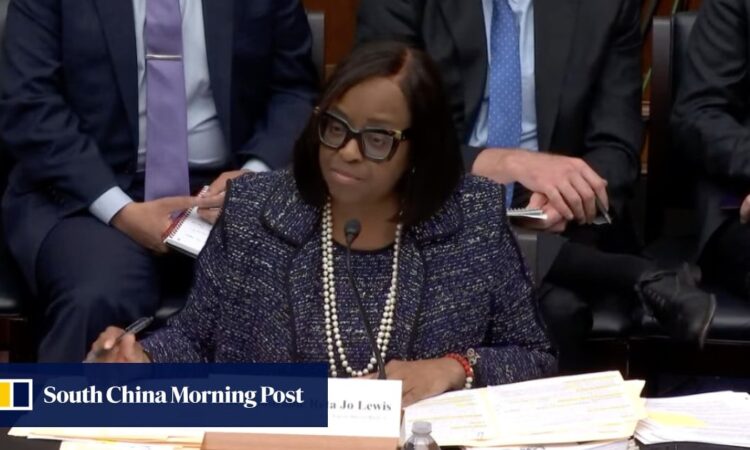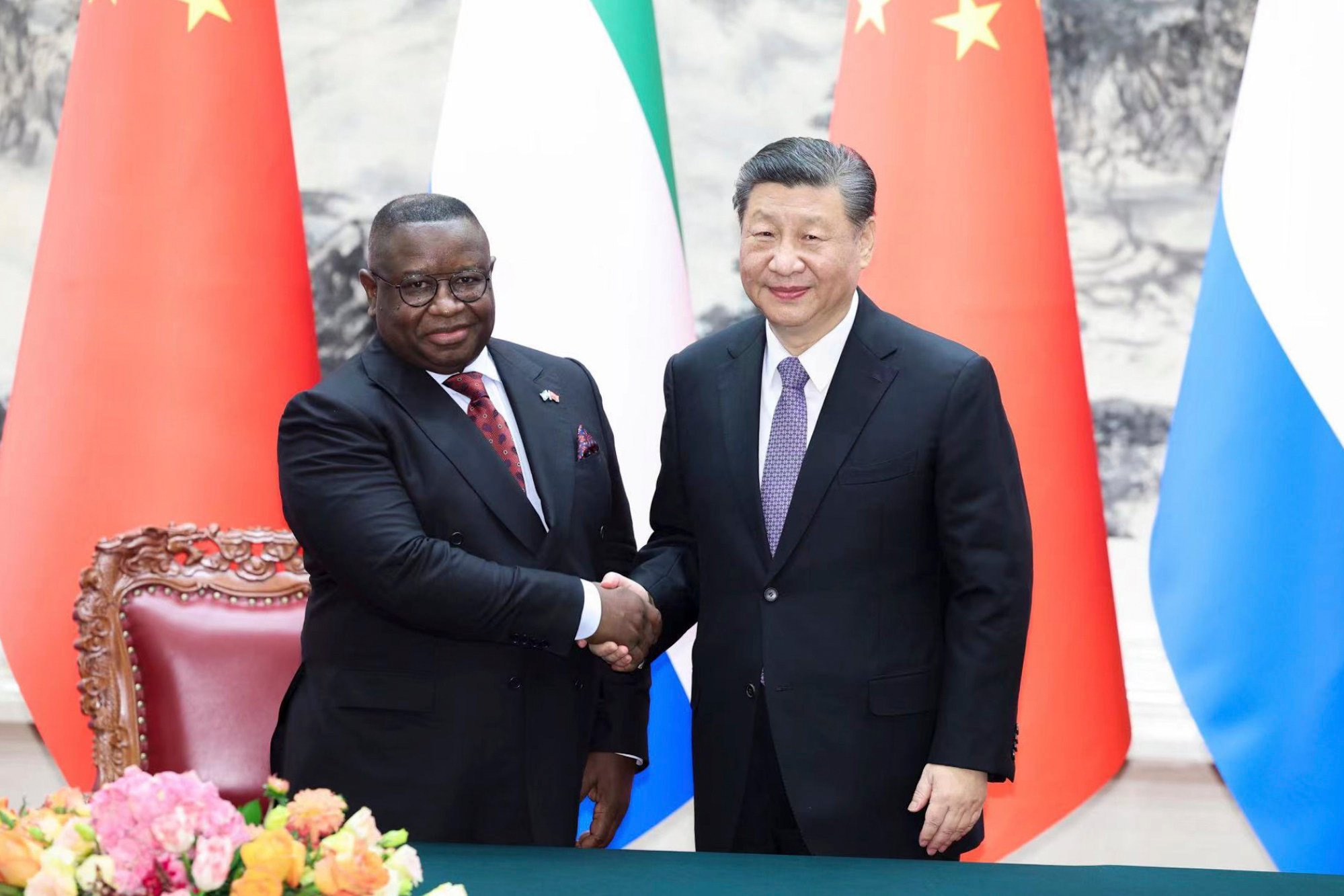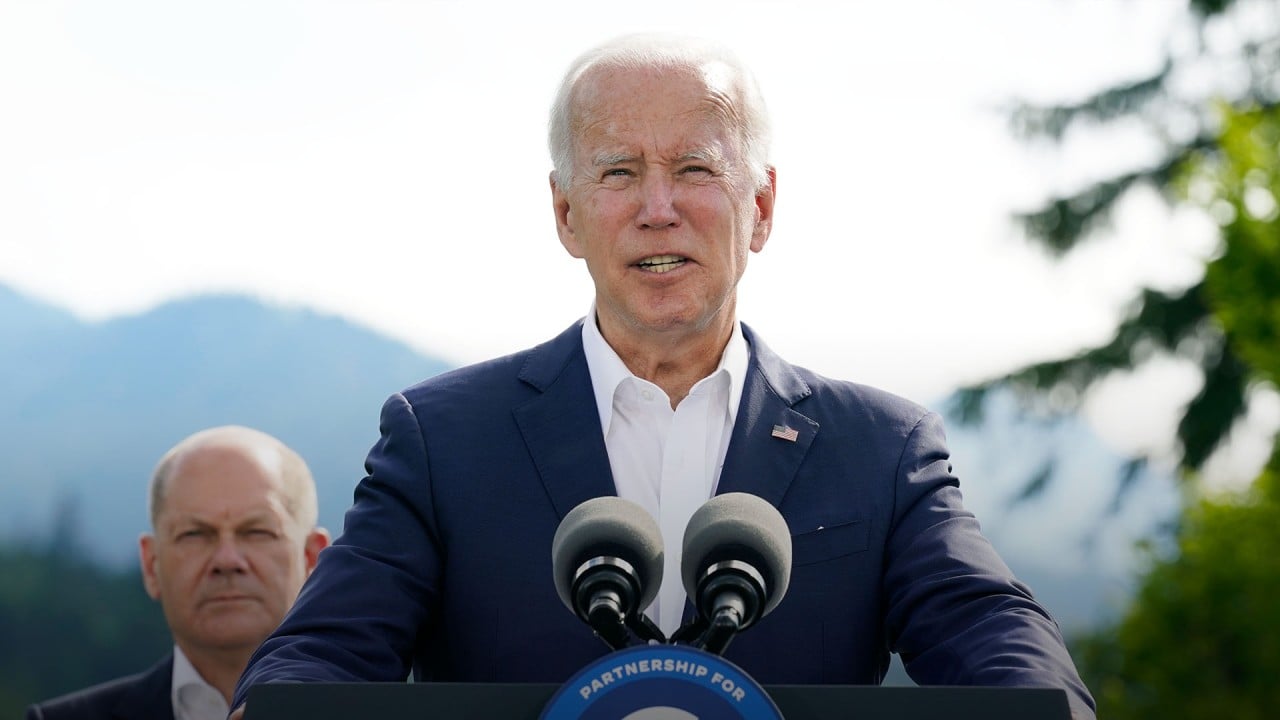
The bank is the official export credit agency of the US, charged with easing the export of US goods and services.
As committee members asked what more the bank needed to facilitate Exim’s mandate, Lewis sought, among other measures, a carve-out that would eliminate Exim’s across-the-board 2 per cent default rate cap for CTEP loans.
“The default rate poses a significant challenge to Exim’s ability to support US exporters,” Lewis said.
In comparison, she noted, the Export-Import Bank of China and other export lenders “are not bound by these constraints”.
“We are seeking a default rate cap exemption for CTEP transactions,” she added. “This will allow them to compete more aggressively against the PRC and embrace higher risk technologies and markets.”
Supporting Lewis, Representative Andy Barr, a Texas Republican, touted legislation that would raise that cap to 5 per cent, which “would allow Exim to be more aggressive in its transactions and posture to counter China’s Belt and Road Initiative” – President Xi Jinping’s signature infrastructure programme to grow global trade.

Representative Joyce Beatty of Ohio, the committee’s senior Democrat, said in her opening remarks that she supported a 4 per cent default rate ceiling.
Barr said also he wanted to raise Exim’s CTEP lending to a third of the bank’s total financing authority, which is set at US$135 billion, from 20 per cent now.
Lewis said CTEP loans currently amount to US$3.6 billion, with a default rate of 1.012 per cent.
Bipartisan enthusiasm for Exim Bank, which was established in 1934, represents a stark reversal from 2015, when Congress voted to defund the agency owing to criticism, mostly from Republicans, who claimed that it was wasteful and distorted market principles.
Several years later, concern among lawmakers about the growth of the belt and road programme, helped to overcome those reservations.
The renewal of its financing authority in 2019 – along with the establishment of the US International Development Finance Corporation, which makes equity investments to support US exports – have become key tools for Washington to address that concern.
Representative Wiley Nickel, a North Carolina Democrat, also backed a loan default rate cap, suggesting a limit of 4 per cent for Exim Bank as a whole and the designation of nuclear energy projects as one of CTEP’s transformational export areas.
Nickel said that he was drafting legislation to that effect to counter the lead that Russia and China have in nuclear technology exports: “Russia’s state-owned nuclear energy conglomerate currently has 70 per cent of the worldwide export market for new reactor construction, and … China could build as many as 30 nuclear reactors around the world.
“Russia and China both funnel endless resources into nuclear exports for their geopolitical influence,” he said.
In addition to more default-rate flexibility, Lewis pushed lawmakers for “an early reauthorisation with enhancements to the CTEP mandate”.
The bank’s current seven-year authorisation will expire at the end of 2026, and Lewis said reauthorisation “would send a strong signal to the world that Congress is committed to supporting Exim and empowering the agency to advance national interest by easing exports and supporting jobs”.
Among its biggest projects, Exim Bank approved a loan last year worth more than US$900 million to the Republic of Angola to support the construction of two photovoltaic solar energy power plants in the country.
According to the bank, that project “will generate over 500 megawatts of renewable power; provide access to clean energy resources across Angola; help Angola meet its climate commitments; and support exports of US solar panel mounting systems, connectors, switches, sensors and other equipment”.






